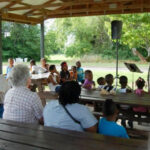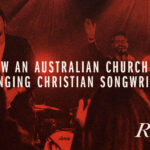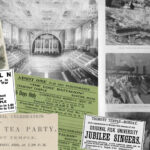Lire en français.
Until the 1970s, the Canadian province of Quebec was almost more Catholic than the Pope.
“This is the first time I was ever in a city where you couldn’t throw a brick without breaking a church window,” author Mark Twain said in 1881. He was in Montreal, where, up until the 1950s, 90 percent of the population attended mass every week—perhaps the highest church attendance in the world, according to historian Mark Noll.
Priests mandated large families, and Quebec’s birth rate was the highest in Canada. Government officials were nearly all Catholic, and most of society came under the influence or oversight of the Catholic church. The people of Quebec were so Catholic that even today, their profanity isn’t sexual but religious—ostie refers to communion, tabarnak means “tabernacle,” and calisse is the holy chalice.
Society remained stable through World War II. And then, in the 1960s and ’70s, rapidly rising tides of economic unrest, individualization, and sexual revolution knocked French-speaking Quebec off her feet. The traditionalist, hierarchical Catholic church went down hard.
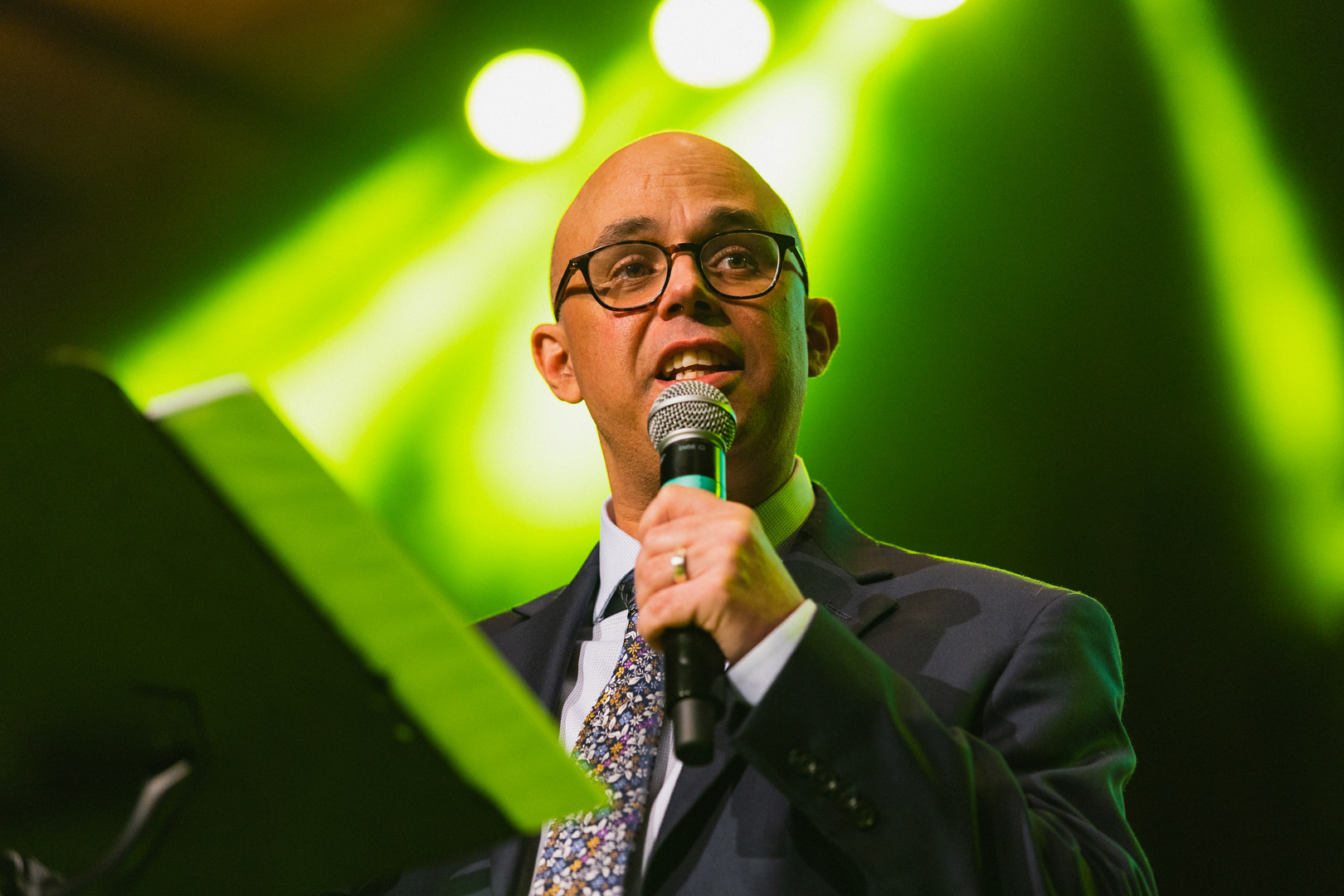
“In one decade, everyone left Catholicism,” said François Turcotte, president of a Baptist seminary in Montreal. “It was the fastest secularization in the world.”
In just five years, weekly mass attendance plummeted from 80 percent of the population in 1968 to 30 percent in 1974. The government separated the church from education, medicine, labor, and social services. Catholic marriages and baptisms, along with the birth rate, began to drop.
“Today, if you walk down the streets here and ask kids younger than 30 if they can tell you who died on the cross—Mohammed or Jesus—they don’t have a clue,” said Yanick Ethier, president of The Gospel Coalition Quebec.
In this post-Christian society, abortion is state funded. Divorce rates are falling, but only because fewer people are getting married. Changing the gender on your birth certificate to X is free, but it’s illegal for a woman to take her husband’s last name after marriage. Quebec leads Canada in physician-assisted suicides—they accounted for more than 6 percent of deaths in 2022. And a recent poll shows Quebecers hold more unfavorable views on religion than anyone anywhere else in Canada.
“If you say you’re an evangelical in Quebec, people think you’re in a cult,” Turcotte said. “They’ve never heard of it.”
He’s hoping to change that. SEMBEQ—short for the Evangelical Baptist Seminary of Quebec—has grown from a single Bible course in 1973 to a full-fledged seminary graduating about 12 students a year.
One of their favorite guest teachers has been TGC cofounder Don Carson, who was born in Montreal and grew up in Quebec. “He showed us his idea of gathering a group of people based around who we are, not what we are against,” Turcotte said. In 2011, he and a few others held their first TGC event, but they couldn’t sustain the momentum.
So they tried again in 2018, and this time, it worked. In the last five years, SOLA—Quebec’s regional chapter of TGC—has grown its Council to 22 members, making it the largest TGC Council outside the United States. The women’s ministry is thriving. Two Council members have started centers for biblical counseling, and SOLA hopes to add expository workshops for preachers next.
“The gospel is the power of God,” Ethier said, “and we are amazed daily at what God is doing.”
More Christian than the United States
If someone asked you in 1955 which country—the United States or Canada—was more Christian, you’d have to say Canada. More than 99 percent of Canadians said they were religiously affiliated, and church attendance was 50 to 60 percent greater north of the border.
One reason: unlike the United States, Canada didn’t separate church and state. Instead, the Catholic church in Quebec—and the Protestant denominations in the other provinces—worked closely with the government to make Christian policies and set up Christian systems for nearly every area of life.
“Quebec long remained a society that trusted the centralized leadership of the church, and then of business and governmental leaders in league with the church,” Noll wrote in “What Happened to Christian Canada?” From the beginning, “independence in Canada embraced the centralized authority that independence in America disdained.”
In a perfect world, that sounds great. But in a fallen world, having a religious government often means having a political church.
“In retrospect, it is evident that in their eager cooperation with the [government], Quebec’s clerical, traditional Catholics had traded their religious birthright for a pottage of corrupt political patronage,” Noll observed.
Perhaps related, “the Catholics [in Quebec] were very medieval,” Turcotte said. That’s the same word Don Carson uses to describe them.
“I remember the indulgences that were sold, the sight of devout pilgrims climbing the stairs of l’Oratoire St-Joseph on their knees while reciting the Rosary at each step, and popular forms of adoration of Mary that I have seen duplicated nowhere in the world except Poland,” he wrote in Memoirs of an Ordinary Pastor. “I recall the vast crowds that turned out to see Cardinal Léger ride slowly in an open car down the main street of our city, and as he passed, everyone—well, everyone except the Carsons—fell to their knees or even flat on their faces before him by the side of the road, a human wave that followed the progress of the car.”
As Carson grew, things began to change. More people moved to the cities, where they made more money, met more people, and heard more ideas. Some of those ideas—such as free love and expressive individualism—were working their way up from the United States.
Soon, intellectuals inside the church began to argue for a break with the past. They promoted a new, updated version of Catholicism—one with more personal freedom and sexual satisfaction, one that trusted secular institutions for social restoration.
They halfway succeeded.
In the early 1960s, two things happened at once: First, the Second Vatican Council attempted to “throw open the windows of the church and let the fresh air of the Spirit blow through.” Leaders changed liturgies and rites, encouraged ecumenism, and allowed married men to be ordained as deacons. But what was meant to be a gentle breeze felt like a gale to many Catholics, who were overwhelmed and disoriented by the changes.
At the same time, a new Liberal government won power in Quebec and swiftly broke with the Catholic church, establishing secular ministries for education, health, and social affairs.
“Everything became separate from the church,” Turcotte said. As a result, in the space of a few years, Quebecers en masse broke with the old ways of Catholicism. But instead of taking up a fresh form of their religion, most walked away from it altogether.
That included Turcotte’s parents—and most of his friends’ parents.
“A lot of older people were reactive to anything religious,” Turcotte said. “But some people said that even though the ideas of Roman Catholicism were bad, they still believed in Jesus. . . . And that’s where God did a revival.”
Protestant Revival
Turcotte’s aunt and uncle heard the gospel from his cousin and were saved. About a week later, they showed up at the house where he lived with his mother. “They preached the gospel to us,” said Turcotte, who was 14 then. “We got saved.”
Ethier’s mother believed the gospel when she began sending him to a Protestant French-speaking school, only made possible by the changes in the government.
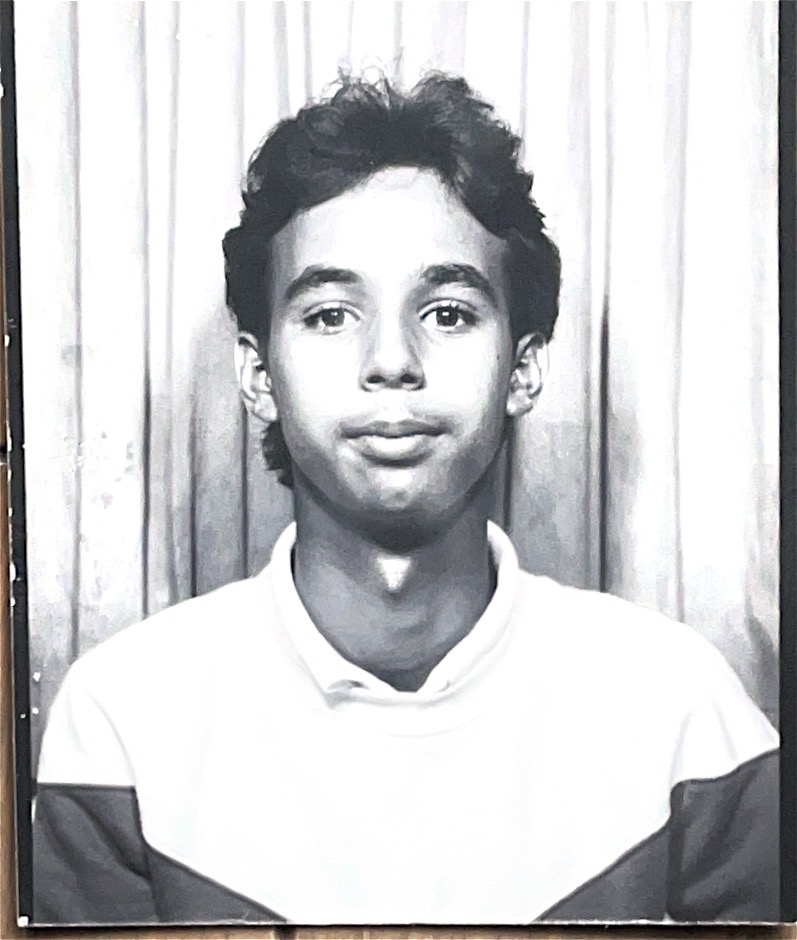
“My parents met evangelical Baptists there,” he said. “We started attending church.”
“In the decade of the seventies, evangelical work in French Canada exploded,” Carson wrote. “From about forty evangelical churches, the work grew to just under five hundred churches and preaching points before settling down to just over four hundred.”
Turcotte and his mom began attending a Baptist church with his uncle and aunt, then moved to a different church after his parents’ divorce.
That’s where he began to serve and where he felt the call to ministry a few years later. He enrolled at SEMBEQ, which had been founded by contemporaries and friends of Don Carson’s father in 1973. With all the new converts, evangelical Baptists needed a place to train French-speaking leaders.
“In the 1970s, our denomination moved from 500 people to 5,000,” said Turcotte. “It just exploded. . . . In that decade, pastors had about six months more experience with Christianity than their congregations. SEMBEQ would offer an intensive course. Everyone would take it, go back home, and preach that. When a guest teacher would come, they’d be up questioning him til 1:00 in the morning. It was a revival time.”
Carson, who was a regular guest speaker, remembers the courses. “Many of them we actually took over from Spanish missionaries, missionaries to Latin America . . . because a lot of that was geared toward evangelizing Catholics,” he said.
He also remembers the late-night meetings—after teaching for an hour and a half, he’d answer questions for another hour, then listen to the prayer requests. He remembers being the first to leave at 1:00 a.m.
“Almost everybody was, ‘Pray for my second cousin twice removed. I’ve been talking to him about the gospel, and I think he’s really close. He’s coming under conviction of sin. Pray that the Lord will really convert him,’” Carson remembers. “It was really vital.”
By 1981, the seminary’s one class had grown to seven courses and 130 students. The revival continued to burn for another five years. Then, in 1985 or ’86, “a door shut,” Turcotte said. “There was no fruit anymore.”
Different Kind of Fruitfulness: Institutions
It’s hard to say exactly why things changed. Perhaps the harvest had been gathered.
“The people became so secular that we’ve had no interest at all for two or three generations,” Turcotte said. “We lost a lot of the second generation and the third generation. . . . People in Quebec are open to spirituality, but not to only one way—not to Jesus’s way.”
Though 54 percent of Quebecers still claim to be Catholic, only about 2 percent attend weekly mass. And less than 1 percent are evangelical, which makes French-speaking Canadians the largest unreached people group in North America.
But Quebec’s Protestants haven’t stopped working.
“The energy of these Spirit-empowered movements that first comes along gives you a lot of impetus and passion and energy to begin with, but what preserves things, what passes things on to another generation, is the first beginnings of institutionalization,” Carson said. “If you don’t institutionalize in any sense, you don’t preserve much. It becomes a flash-in-the-pan kind of thing.”
One important institution has been SEMBEQ, he said. The seminary kept growing—awarding its first bachelor’s degrees in 1984 and its first master’s degrees in 1990. When the seminary and its denomination celebrated their 50th anniversary this year, more than 1,000 people turned out to celebrate.
Another growing institution has been the French-Canadian Gospel Coalition.
Around 15 years ago, “Don Carson started to talk to us about having no place to go to find truth,” Turcotte said. “In our movement, we kept talking about what we were not.”
Like many minorities, the Protestants were defining themselves by how they were different from Catholics. Carson explained that instead, they might want to gather around something they were.
“He came here to teach every year and gave us the news about what he was starting with Tim Keller,” Turcotte said. “Since the beginning, we had a bit of the same dream.”
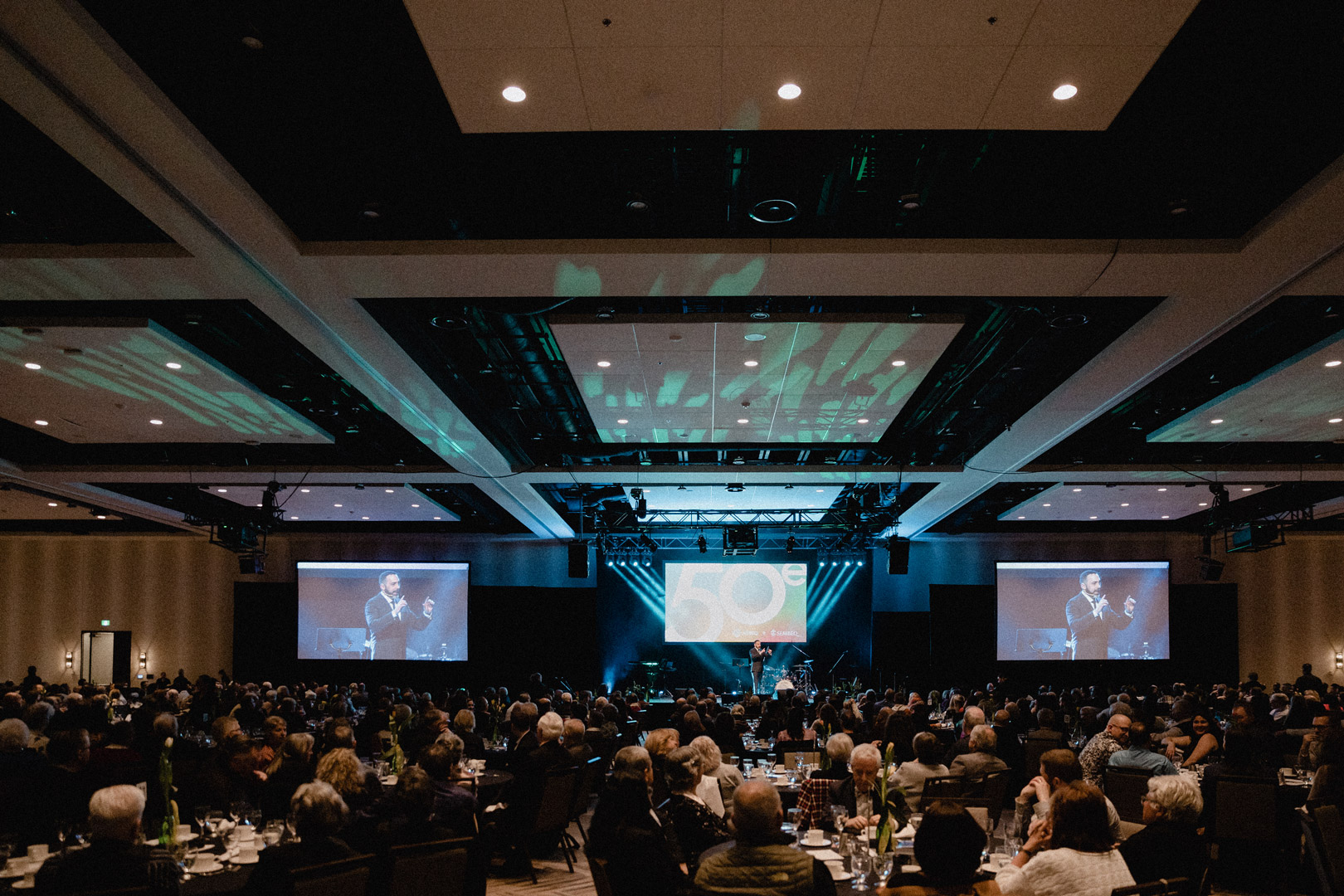
In 2011, SEMBEQ sponsored a TGC event. More than 1,000 people came.
“It was a great success,” Turcotte said. “The trouble was, my [denominational] tribe did 90 percent of the work. All the other tribes said, ‘That’s not our event.’ We confessed that and restarted a second time with everyone around the table.”
“Everyone” meant leaders from half a dozen denominations—Reformed Baptists, Brethren, Evangelical Baptists, Fellowship Baptists, Union Baptists, Canadian Reformed Churches, Associated Gospel Churches of Canada, Calvary Chapel, and La Bible Parle. “Their love for and attachment to the Bible is very strong,” said Ethier, who now leads the group.
Because of that, “the idea of preaching expositionally was adopted very fast in the churches,” he said. “And if you’re really preaching by exposition, you’re going to have to address the questions of Reformed theology at some point. You can’t escape them.”
With the influence of Don Carson, John Piper, Tim Keller, John MacArthur, and others, the leaders sharpened their theology. They agreed enough to form their own TGC chapter. Since they were starting about 500 years after the Reformation, they called themselves SOLA.
But it’s hard to gather a disparate group of pastors, who all have different perspectives and priorities. The second attempt to coalesce also faltered.
SOLA
Turcotte, Ethier, and their small band of pastors didn’t give up.
“We did a third restart in 2018,” Turcotte said. “We were very relational. We took lots of time for building bridges.”
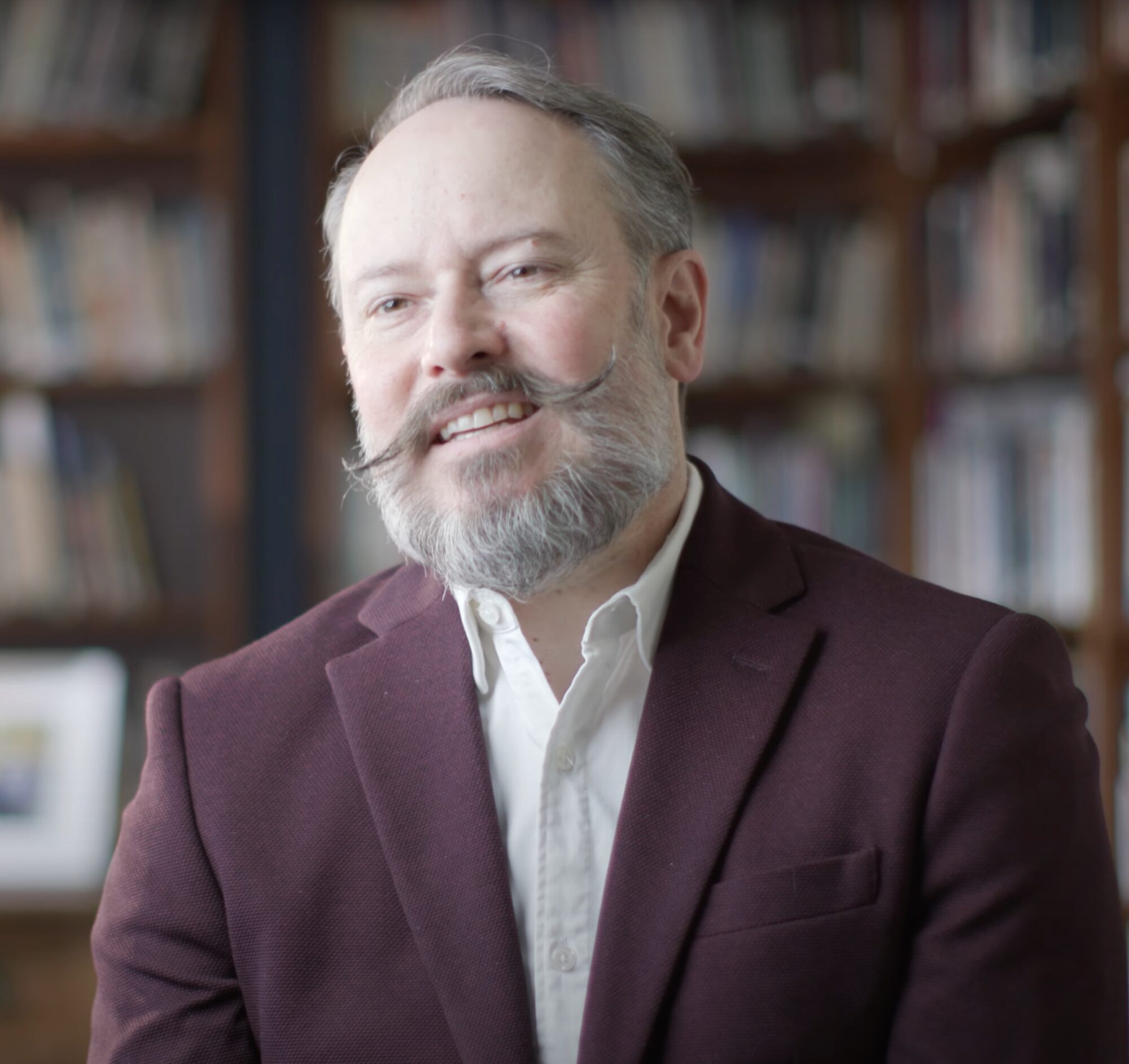
“That was the right way to do it,” Ethier said. “We started meeting together, sharing the vision and discussing the future. We grew smaller in events but deeper in relationship and friendships.”
One common project was a biblical counseling center. Before that, Ethier said, “When I had no answer or was overwhelmed, I had to send my people to a non-Christian psychologist or a spooky Christian therapist who would do strange things.” With the help of CCEF’s David Powlison and a rural French Canadian pastor with counseling degrees from Reformed Theological Seminary, he started a biblical counseling center at his church in Montreal.
“The gospel-centered biblical counseling movement has created bridges around all the tribes,” Turcotte said. “God used that as kind of the glue to connect us together.”
Another common project has been training women. “We started that two years ago, and it has gone viral,” Turcotte said.
SOLA: Women’s Ministry
Angie Velasquez Thornton was born in California to Colombian immigrants who were lapsed Catholics. In high school, she fell in love with Jesus and the French language. During a gap year between high school and college, she took Bible classes in France and Senegal and committed herself to missions work in Africa.
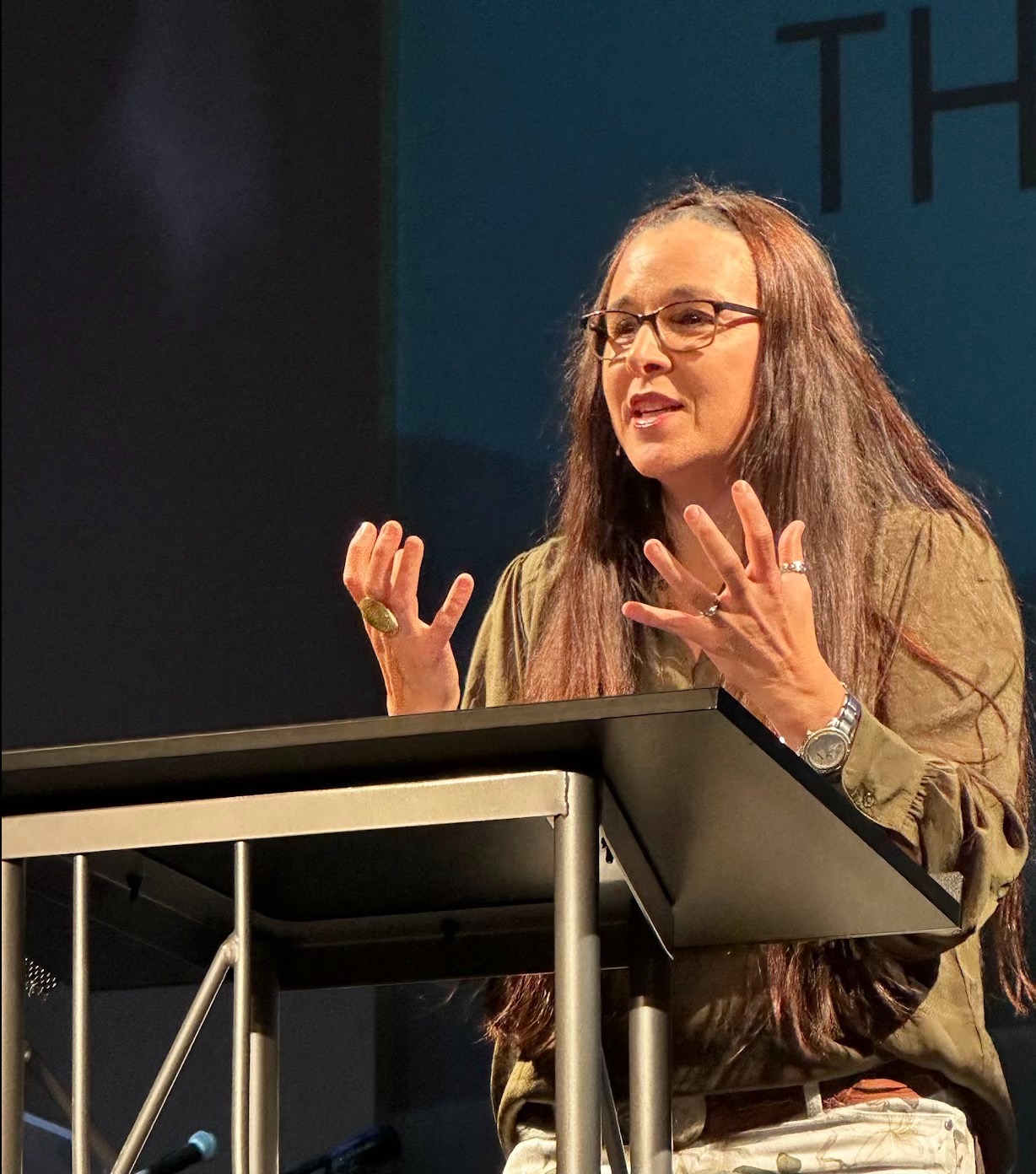
Back home, she earned a master’s from UCLA in African studies, then an MDiv from Moody Theological Seminary.
“I wanted to be involved in theological education, but as a complementarian, I didn’t want to serve primarily training men in Africa,” she said. “I really wanted to work alongside a man with that same calling. But the pool of eligible men who fit that description was nonexistent.”
When Thornton told her mom she was looking for a husband who wanted to move to French-speaking Africa to do Reformed theological training, her mom was aghast.
“How are you ever going to meet someone like that?” she asked her daughter. “You have to lower the bar!”
“Mom, I’m trusting the Lord,” Thornton said.
On a singles website, she stumbled across the profile of a Canadian man whose description said he was planning to be a missionary in Africa. She shot him a line.
“I soon discovered that not only was he planning to serve God in Africa, but specifically in Senegal,” she said. “And what’s more, in theological education. And that’s how I met and married Dan Thornton within a year.”
They worked in Senegal for 10 years before Dan’s health concerns forced them back to North America. They’re still full-time missionaries with Crossworld, and Dan’s an elder at their church in Quebec, teaches at SEMBEQ, and serves as the editor of the SOLA website.
Angie, meanwhile, started thinking about women’s ministry in Quebec. A few years ago, she went to a Charles Simeon Trust workshop in Toronto.
“I got really excited about bringing French-speaking women along with me,” she said. “I could see the benefit of giving women the tools to study the Word of God for themselves, so they could in turn equip and train women to lead Bible studies without having to buy a study translated from English.”
But it was hard to make it happen. Toronto was at least a seven-hour drive away. “It was two days of workshops, plus two days of driving,” she said. Only two women could commit to going with her.
“Then the pandemic hit, and Simeon Trust workshops all became available online,” Thornton said. “That changed everything.”
She recruited 12 women from Quebec, plus two more in France and another two in French-speaking Africa. They hired a translator to interpret the Zoom training. Afterward, the women began producing studies together.
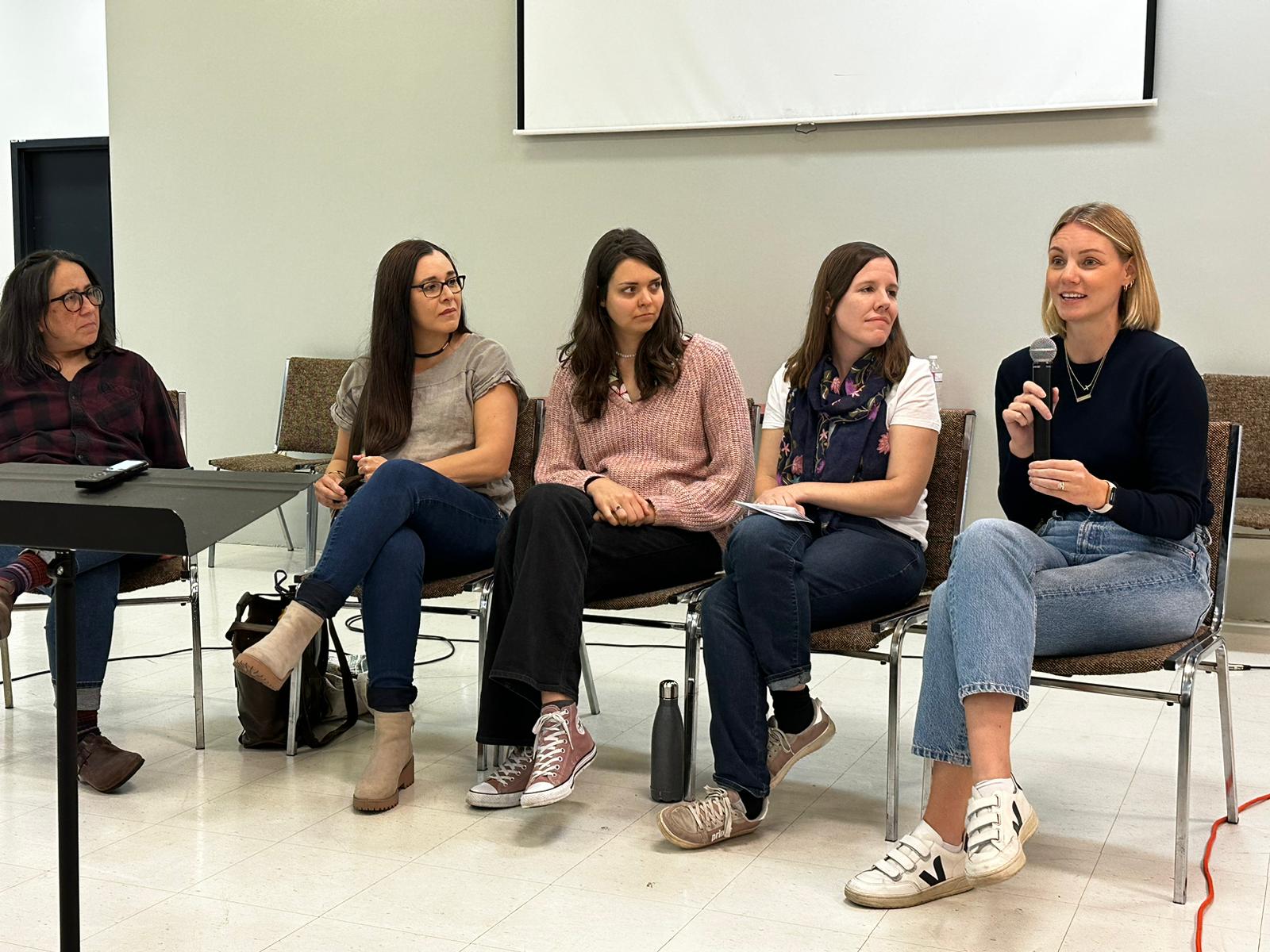
Two years ago, Ethier got wind of it and asked if she’d come on staff at SOLA.
“The work I was doing on my own, with my team of sisters and the support of my husband and the local church, exploded because I had the backing and the platform of SOLA,” she said. Her program takes women through a book of the Bible throughout an entire year—first with a Simeon Trust–like workshop in the spring, then a six-week online cohort in the fall, and then a conference in the winter.
“We had around 200 women for our first conference last year,” she said. “It was the biggest conference in Quebec in our theological tradition since before the pandemic.”
She’s hoping to get more than 300 women out to hear Mary Willson Hannah speak on Exodus at their next conference in March.
“Our goal would be to eventually not need to import someone, because there would be enough trained women to speak and teach and lead here,” she said. “In the meantime, we’re bringing in people who will really enrich women in the study of God’s Word.”
That strategy—of bringing in Christians from other countries—is also helping churches.
Church Growth in a Post-Christian Culture
Last year, Quebec welcomed a record-high 155,400 immigrants and birthed a record-low 80,700 babies. A lot of those babies were born to immigrants—a full third had at least one parent born outside Canada.
“Secular people don’t make babies,” Turcotte said. “If you move to Quebec, your neighbor will be Pakistani or Indian or Moroccan. In Montreal, many of the students are children of immigrants.”
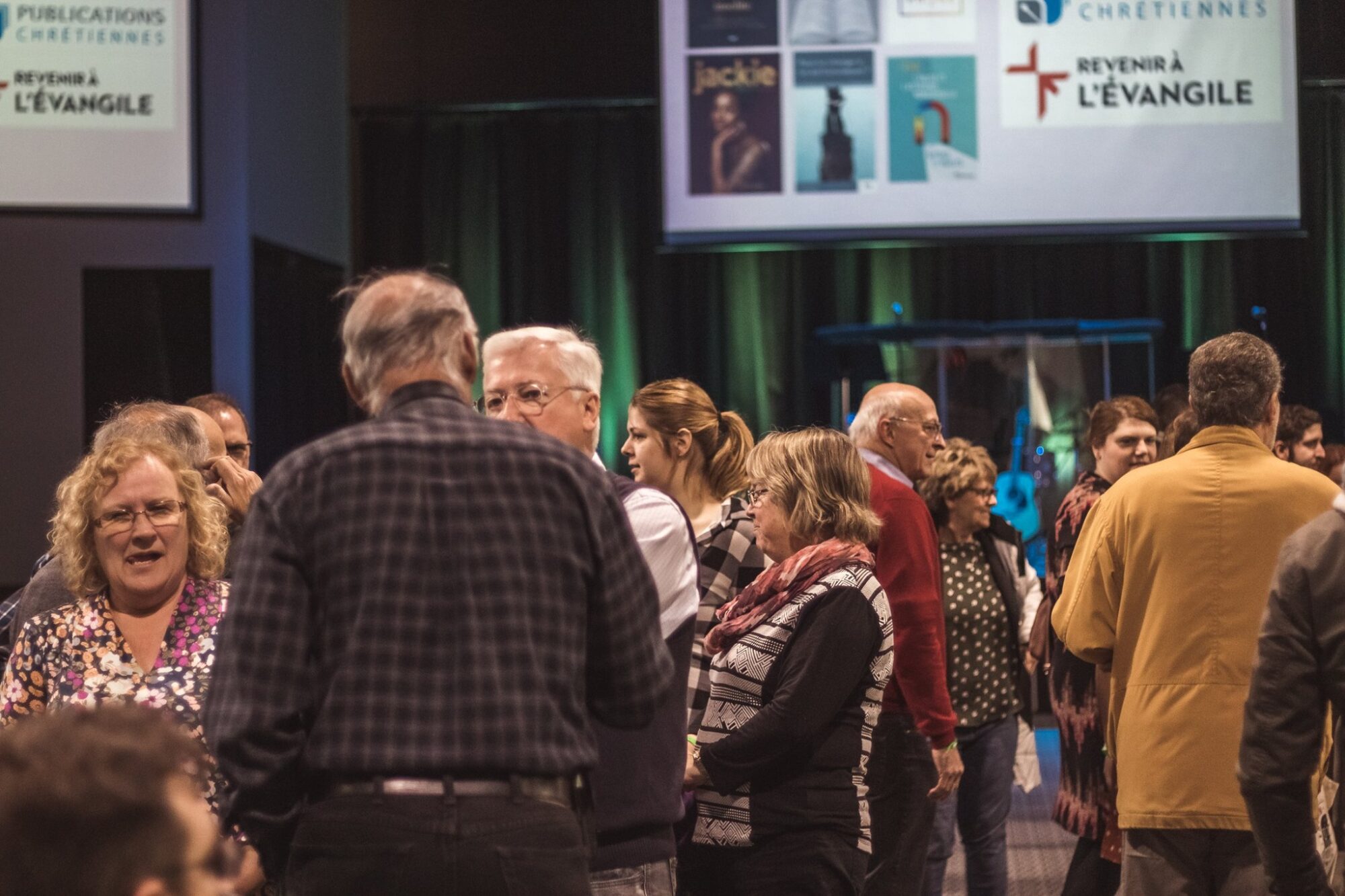
Many immigrants are already Christians and are joining and strengthening existing churches, he said. “And if I talk with a Muslim immigrant, his worldview is closer to ours [than a secular person’s is]. He believes God is just, is a judge. He believes an objective right and wrong exist.”
Close to 5 percent of the population is now Muslim, he said. “If you meet someone who would like to preach the gospel to Muslims, send them to Quebec. We need 10 times more people doing that.”
Evangelism is a lot harder among the secular population.
“Basically, every young person in Quebec who isn’t a new migrant is a ‘none,’” Ethier said. “They never open the Bible, never read it. They have no idea what John 3:16 is. They know it’s good to love your neighbor as yourself, but they don’t know it comes from the Bible.”
They aren’t as antagonistic toward God or the church as their grandparents were. Instead, they mostly ignore both.
“They think that if God exists, he’s a good person who would never judge them,” Ethier said. In a hazy worldview of “nobody can tell me who I am,” the main goal is to find your own identity, he said.
“You need to reach out to them through the suffering in their lives,” he said.
He’s already watched that strategy bear fruit through chaplaincy.
“Chaplains can go into senior homes or sports teams,” he said. “They aren’t a threat to anyone.”
One chaplain he knows got connected with a funeral home. “He’s in a city of about 50,000 people, and he does about two to three funerals a week,” Turcotte said. “In four years, he’s probably preached the gospel to the entire population of his city. When he goes out to do his grocery shopping, it takes triple the time now because everyone talks to him. You never would have seen that before.”
Ethier has also seen fruit through community relations.
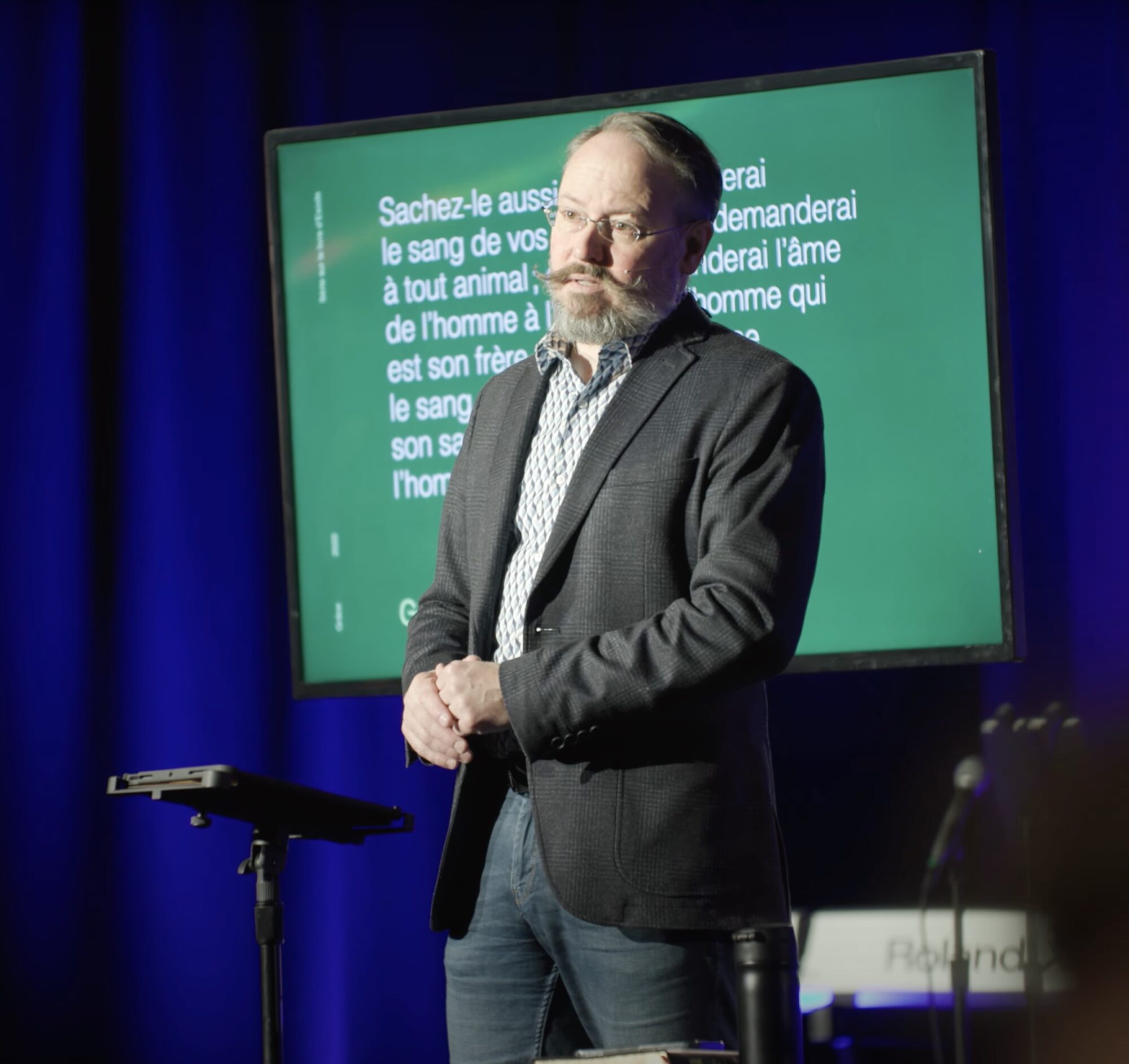
“Most policemen would think we were a cult,” he said. “But out of the Lord’s guidance, one of our church members is serving with a homeless ministry in Montreal. Through that connection, he met a man from the police department.”
The police were looking to meet with pastors, and Ethier developed a friendship with them. He offered to help in any way he could. The police took him up on it and began doing training in the church building.
“I got the opportunity to explain to the police what a church is,” Ethier said. “I said it is a family of broken people who understand their brokenness and understand the love of God. I explained that if someone is a sexual criminal who is repentant, we protect our kids from them, but they have a family here.”
Now the police call Ethier when they need help at a nearby shelter. One officer asked Ethier to come and pray with an upset person. Afterward, the officer began taking her lunch breaks in an empty office space in the church. Last year, when a family in another local church offered to take custody of children from a broken home, the police gave testimony in court to the faithfulness of that church.
“Such a collaboration between the police and the church is unimaginable in Quebec,” Ethier said. “But the Lord still works.”
Beauty in the Ashes
It’s not easy to be a Christian in a pagan place.
“To be honest, Christians in Quebec are pretty fearful of what is coming up with the culture, because it is growing so post-Christian so fast,” Ethier said.
Church planting isn’t easy either. “It’s hard soil,” he said. “We don’t plant a church in three years. It takes 15 years.”
Recently, he struggled through a hard week of church discipline issues.
“The culture is still influencing the church, so we have our days when we say, ‘Lord, why? Why such a hard field?’” he said.
But then he remembers.
“So many Christians around the world are serving the Lord in conditions that are far, far harder than ours,” he said. “The gospel is still the power of God. And the love of God and beauty of the gospel are all the more enticing when life is such a mess.”
Try Before You Buy: FREE Sample of TGC’s New Advent Devotional
 Choosing the right Advent daily devotional can be tough when there are so many options. We want to make it easier for you by giving you a FREE sample of TGC’s brand-new Advent devotional today.
Choosing the right Advent daily devotional can be tough when there are so many options. We want to make it easier for you by giving you a FREE sample of TGC’s brand-new Advent devotional today.
Unto Us is designed to help you ponder the many meanings of this season. Written by TGC staff, it offers daily Scripture readings, reflections, and questions to ponder. We’ll send you a free sample of the first five days so you can try it out before purchasing it for yourself or your church.









